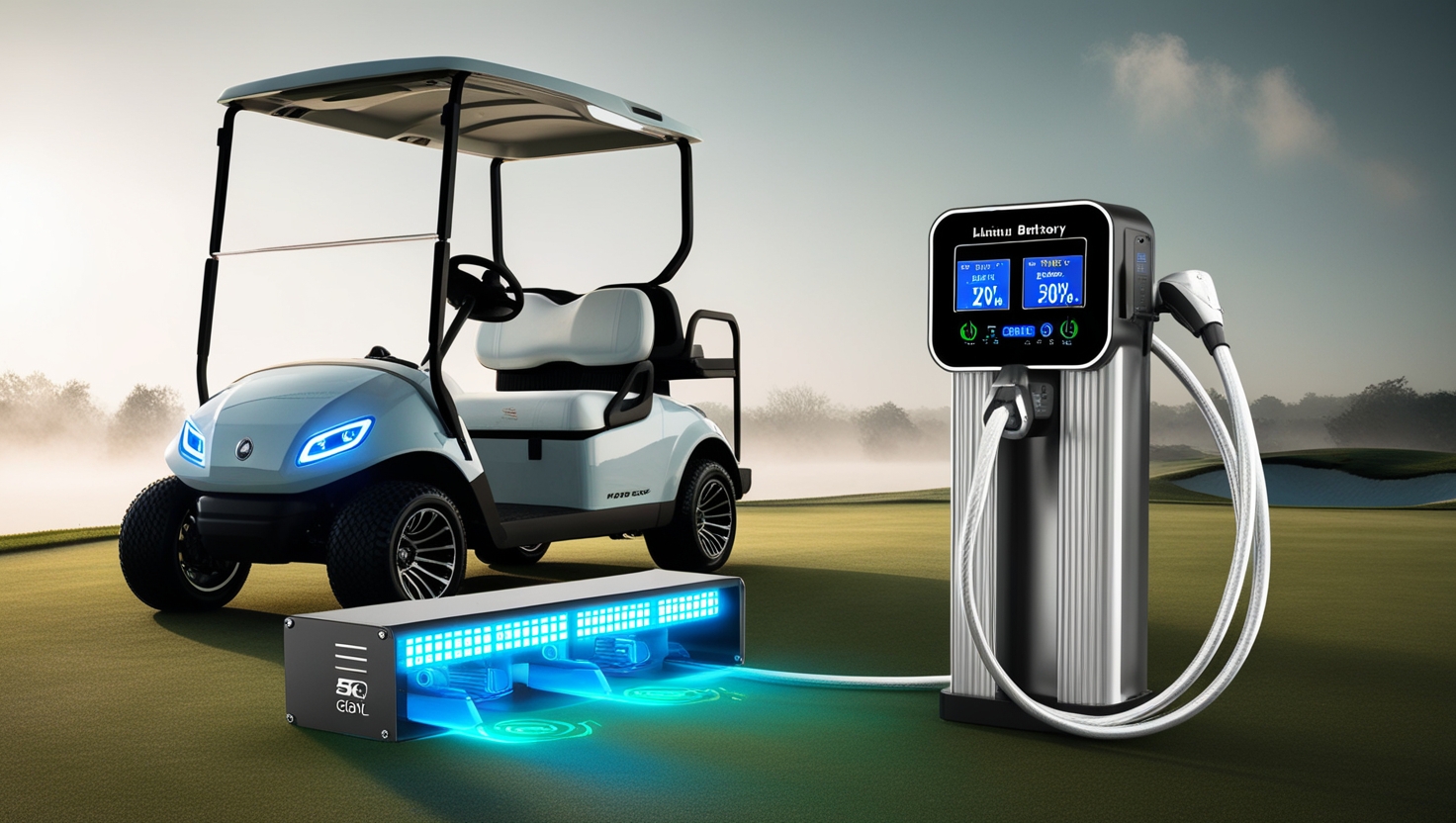Introduction:
Lithium batteries are becoming increasingly popular in various applications due to their high energy density, long life, light weight and environmentally friendly properties. This trend has extended to golf carts, with more and more manufacturers choosing lithium batteries to replace traditional lead-acid batteries. However, a common concern among golf cart owners is the possibility of overcharging lithium batteries and its impact on their performance and longevity.
.png)
.png)
Understanding Lithium Battery Charging
In order to solve this problem, it is important to first understand the basics of lithium battery charging. Unlike lead-acid batteries, lithium batteries require specific charging protocols to ensure optimal performance and safety. The charging process usually involves two stages: constant current (CC) and constant voltage (CV).
During the constant current phase, the battery charges at a steady rate until it reaches a predetermined voltage. Once this voltage is reached, the charger switches to a constant voltage phase, where the voltage remains constant while the current gradually decreases. This two-stage charging process is designed to maximize battery life and performance.
The Influence of Overcharging
Overcharging occurs when a battery's charging voltage exceeds its recommended level. This can lead to a range of problems, including shortened battery life, reduced capacity and, in extreme cases, thermal runaway and even fires. When it comes to golf cart batteries, overcharging can seriously affect the overall performance and lifespan of a lithium-ion battery.
One of the main problems with overcharging lithium golf cart batteries is that cycle life may be reduced. Cycle life refers to the number of charge-discharge cycles a battery can go through before its capacity falls below a certain threshold. Overcharging accelerates the degradation of the battery's active materials, resulting in reduced cycle life and overall lifespan.
In addition to shortening cycle life, overcharging can cause an increase in the battery's internal resistance. This can result in higher operating temperatures, lower energy efficiency, and lower overall performance. In the case of golf carts, these impacts can result in reduced driving range, reduced power output, and ultimately a degraded user experience.
In addition to shortening cycle life, overcharging can cause an increase in the battery's internal resistance. This can result in higher operating temperatures, lower energy efficiency, and lower overall performance. In the case of golf carts, these impacts can result in reduced driving range, reduced power output, and ultimately a degraded user experience.

Preventing Overcharging
To reduce the risk of overcharging, golf cart owners and operators must practice proper charging practices and use chargers specifically designed for lithium-ion batteries. This includes using a charger equipped with voltage and current regulation mechanisms to prevent overcharging, as well as adhering to the manufacturer's recommended charging protocol.
At the same time, implementing a battery management system (BMS) can provide an extra layer of protection against overcharging and other potential issues. BMS systems are designed to monitor and balance individual cell voltages, ensuring batteries are operating within safe limits and preventing overcharging or undercharging of specific cells.
Conclusion
Overcharging a lithium golf cart battery can have detrimental effects on its performance, lifespan, and safety. It is essential to understand the charging requirements of lithium batteries and use appropriate chargers and charging protocols to prevent overcharging. Following the manufacturer's guidelines, utilizing compatible chargers, and, when available, relying on built-in Battery Management Systems can help ensure the longevity and safety of lithium golf cart batteries. By taking these precautions, golf cart owners can enjoy the benefits of lithium batteries while maximizing their lifespan and minimizing potential risks.
If you have any questions or would like to learn more, please don't hesitate to reach out to us.
Request for Quotation:
Jacqueline: jacqueline@heltec-energy.com / +86 185 8375 6538
Sucre: sucre@heltec-bms.com / +86 136 8844 2313
Nancy: nancy@heltec-energy.com / +86 184 8223 7713
Post time: Aug-06-2024
